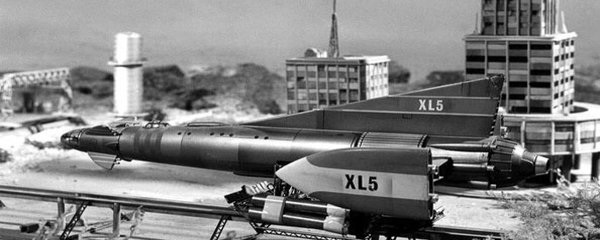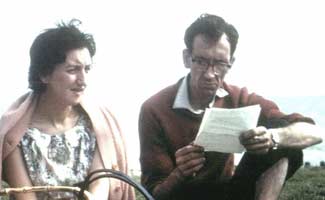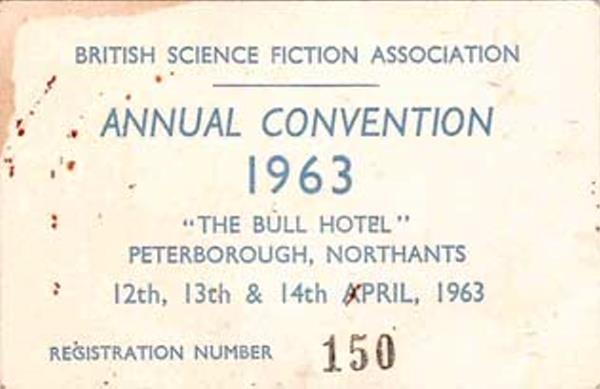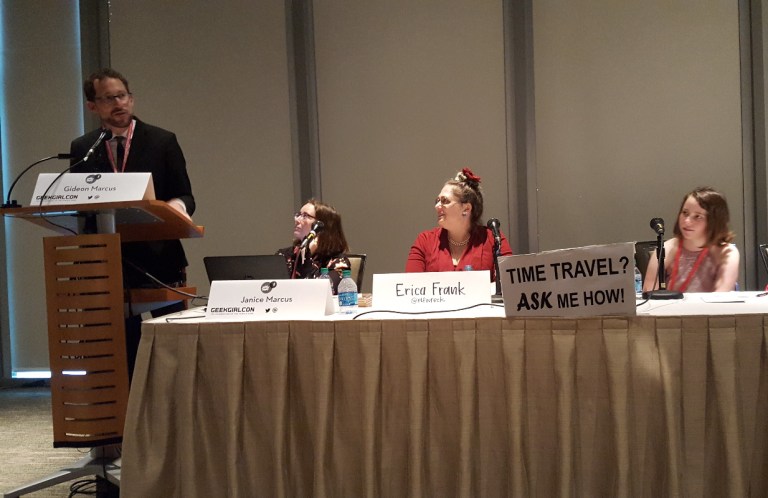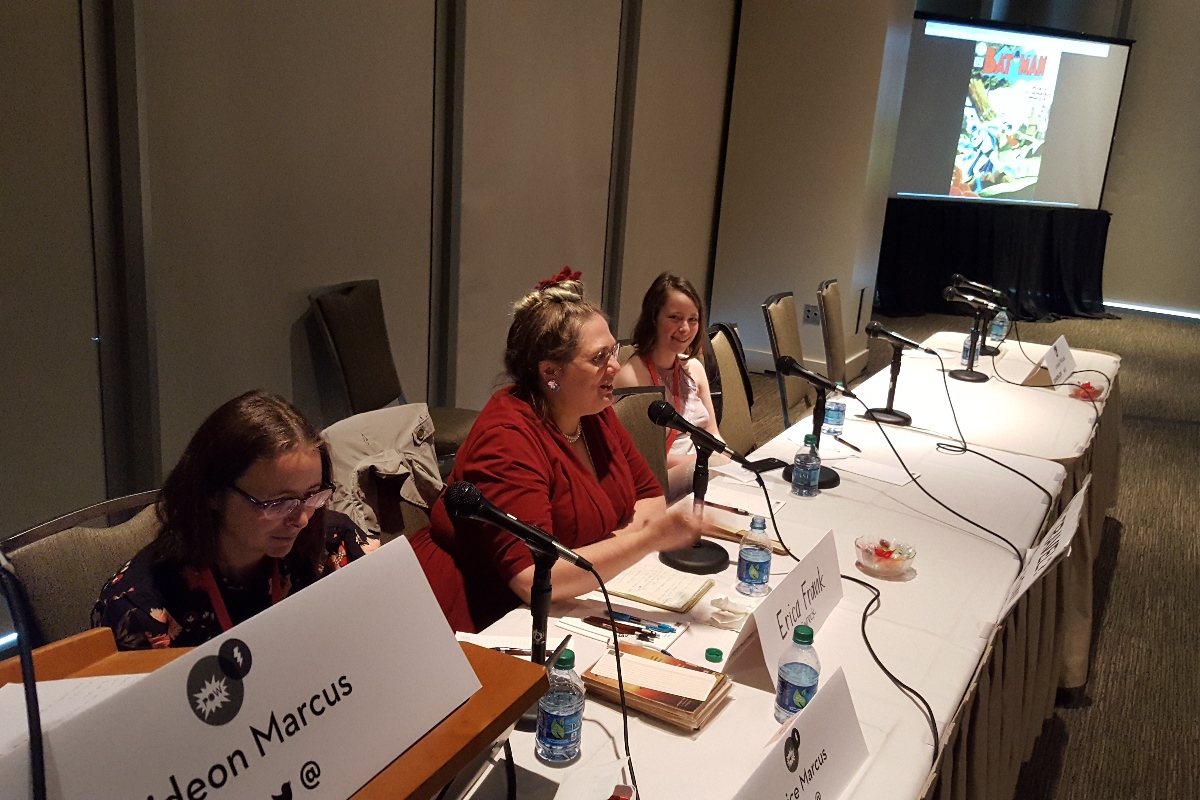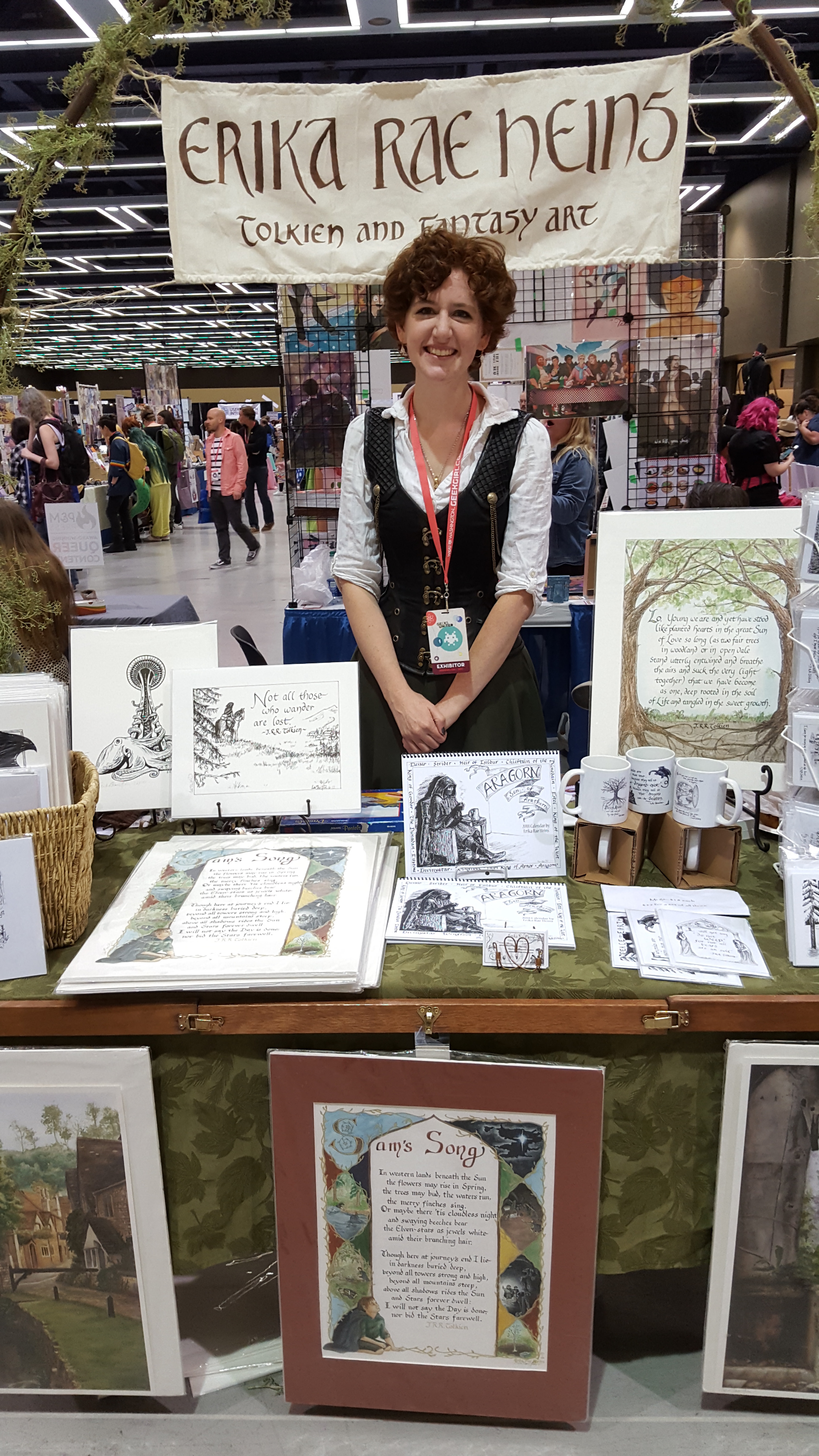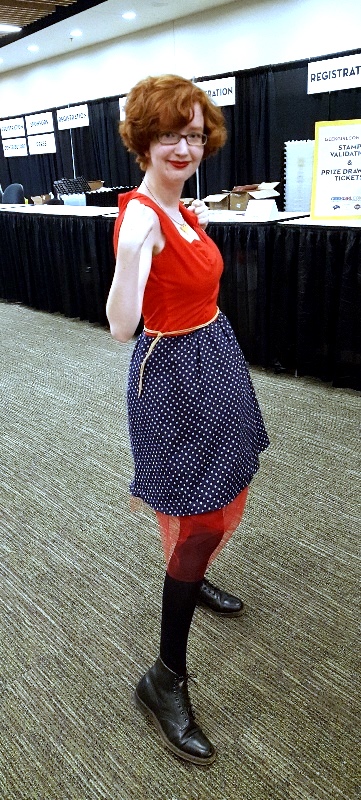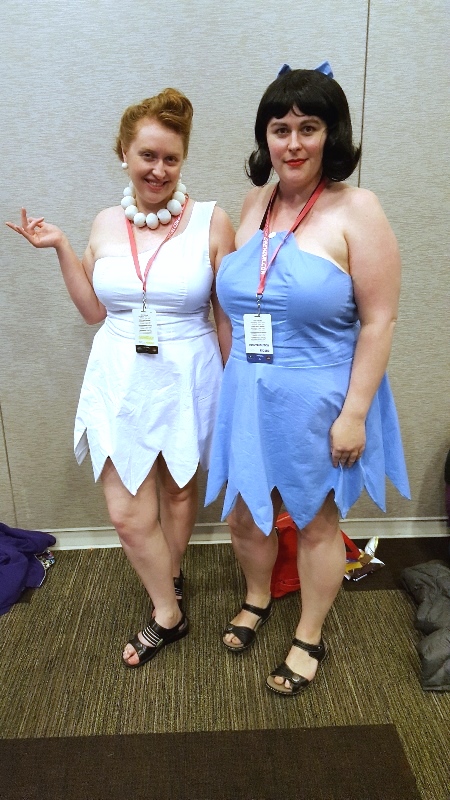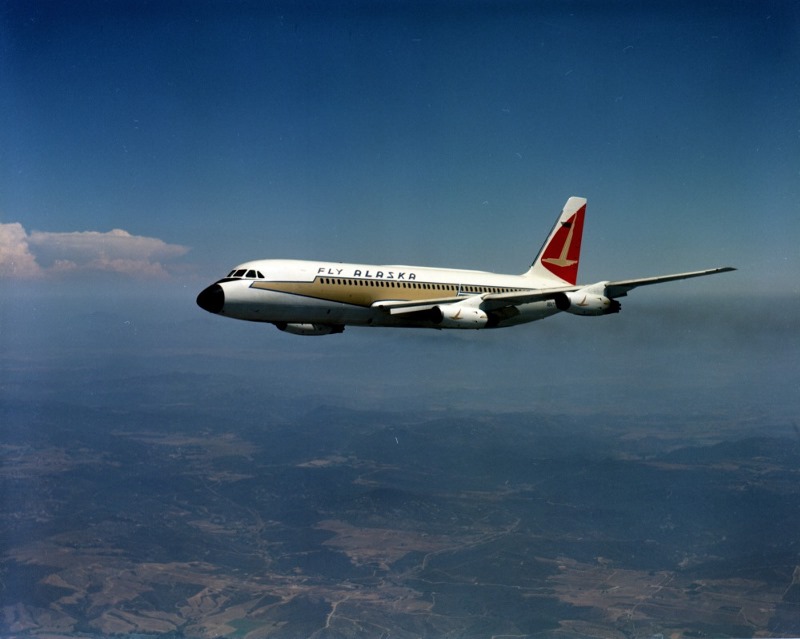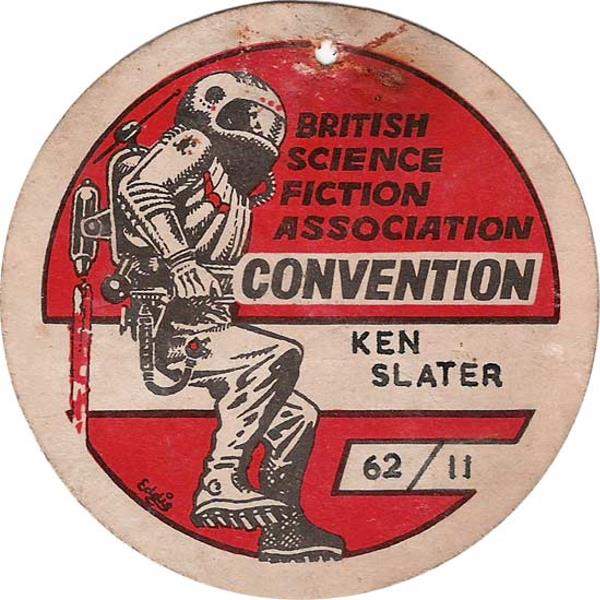
by Alison Scott
A report of the Thirdmancon, Eastercon 1968
It’s hard to overstate the anticipation I had for Eastercon 1968. It was going to be the largest national convention ever, with over 200 fans expected! In the end I understand that something like 150 people turned up; still the largest British national convention yet.
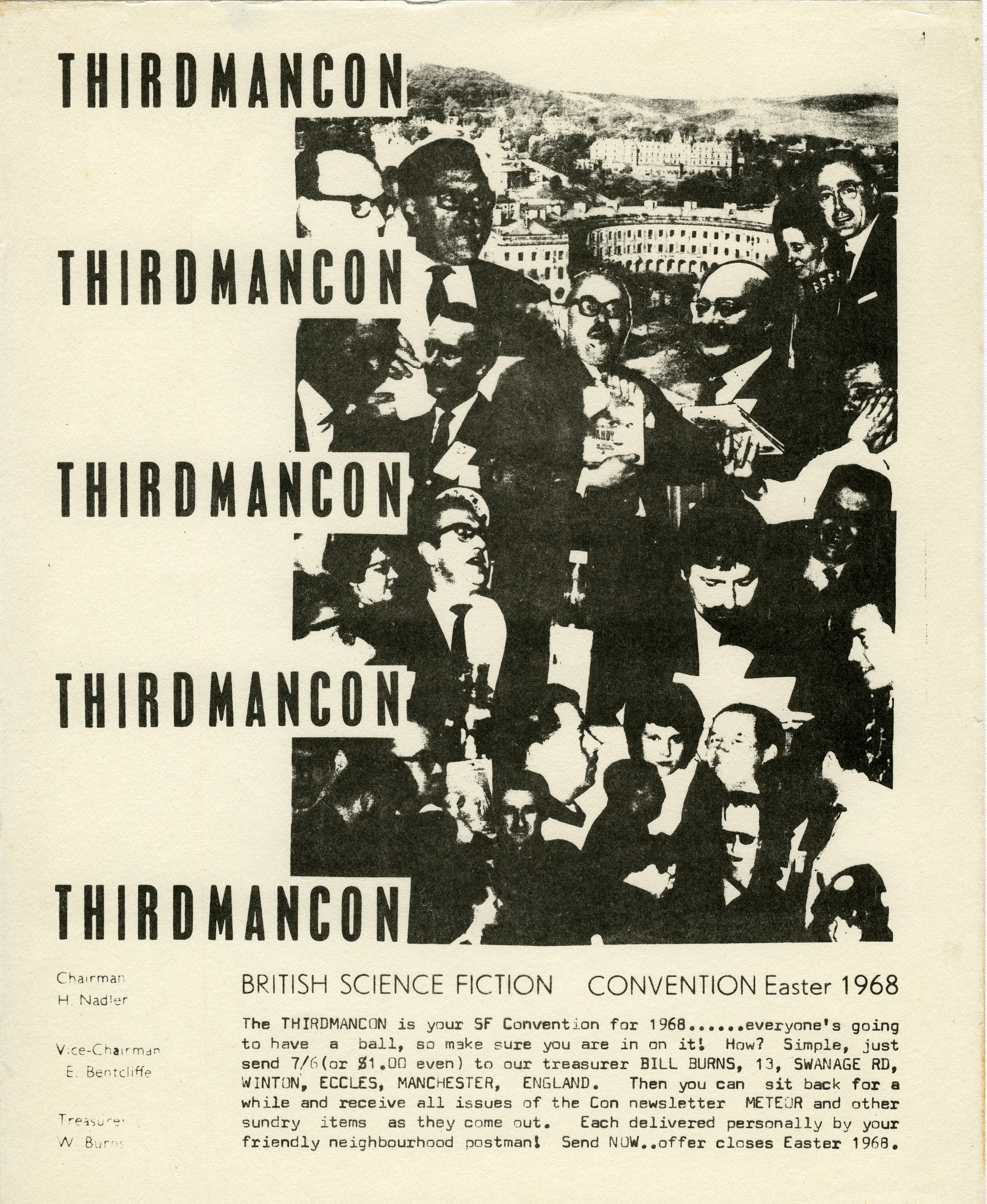
Still Riding the Slow Train
I set off from Hoe Street station on Good Friday morning in a state of considerable expectation. My journey was quite tedious, involving travelling into the city, crossing town on the Metropolitan line, taking the express train, but only as far as Stockport, and then finally changing to a beautiful but majestically slow branch line down to Buxton. The convention had originally been planned for a town with a mainline station, something I considered frequently while stopping at stations with names like Hazel Grove, Disley, Dove Holes, and Chapel-en-le-Frith.
Authentic Georgian Piles
Buxton is a beautiful spa town that has perhaps seen slightly better days. That was certainly true of St. Ann’s Hotel, situated at one end of the once glorious but now dilapidated Georgian Crescent. I arrived to find someone waving a sword through his car window. This set the scene for a very vibrant but perhaps rather disorderly con.
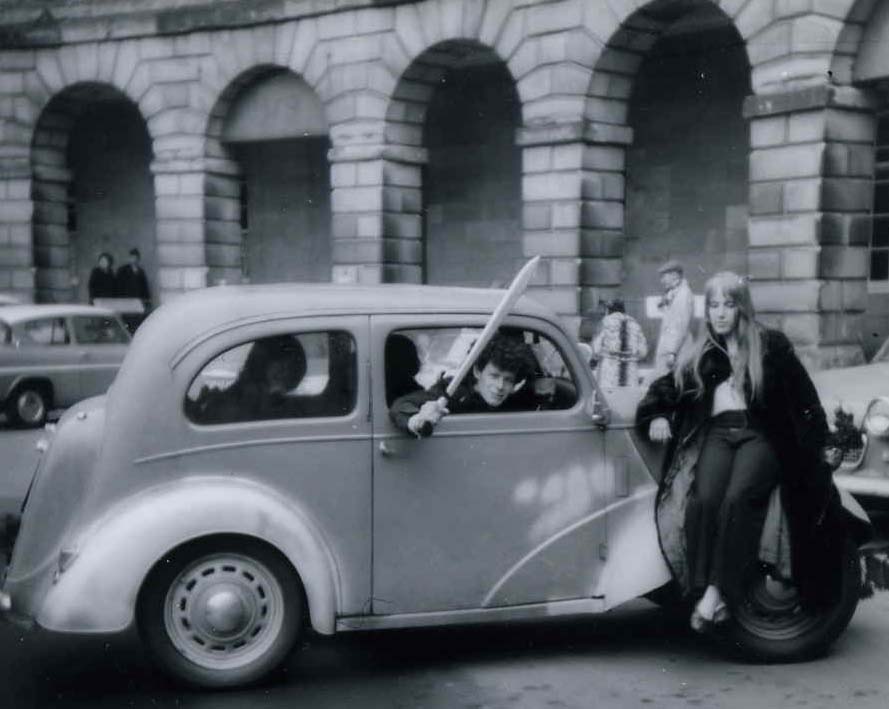
I was in the overflow hotel, at the other end of the terrace, and there were a lot of fans milling around. It turned out that the hotel had misplaced their booking, and mine. Fortunately they quickly realised I was a lone female traveller and sorted me out with a tiny single room that I suspected might have previously been used to store laundry. The hotel appears to have retained many original features, like the plumbing, the lino, and the bedlinen. Ah well, all I’d be doing here was sleeping.
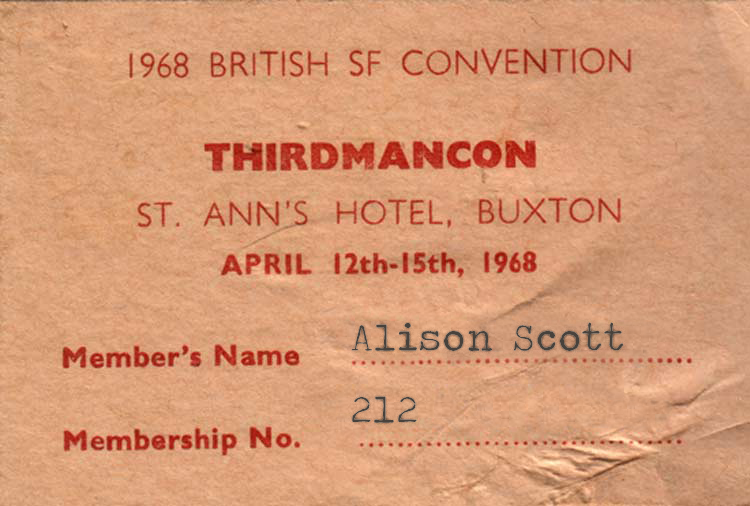
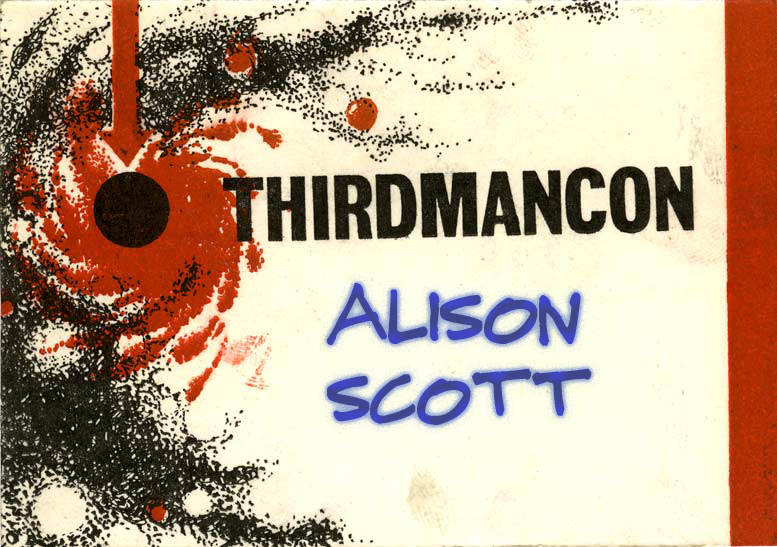
After I picked up my badge and programme book, I was a bit overwhelmed at how many fans were there. I was later told it was nearly 150; a huge number for an S-F convention! Quite a lot were local to the northwest, but there were fans from Ireland and several from America. This year the convention was being run by the Delta film group from Manchester, and so there was a lot of film-themed programming, including some of their own films, other films, and film related items. So some of the influx of fans was other film buffs. But not all by any means. Luckily I spotted Ella Parker, who had magisterially formed a one-woman tea salon in the lounge, having noticed that everyone would pass through that point. I was just happy to see a friendly face and fellow London Circle member.
Ella introduced me to a group of German fans. My German is terrible, but their English was quite good. They’re bidding to hold Germancon, the World SF Convention, in Heidelberg, West Germany in 1970; that will be quite the event I’m sure. The decision will be made at this year’s Worldcon in America. They were drumming up support but most fans were pretty supportive anyway and in fact the convention passed a motion of support for the bid. I spoke to some of the US fans about it, and they think that US fans are also enthusiastic about the idea of Worldcon going to a non-English speaking country for the first time.
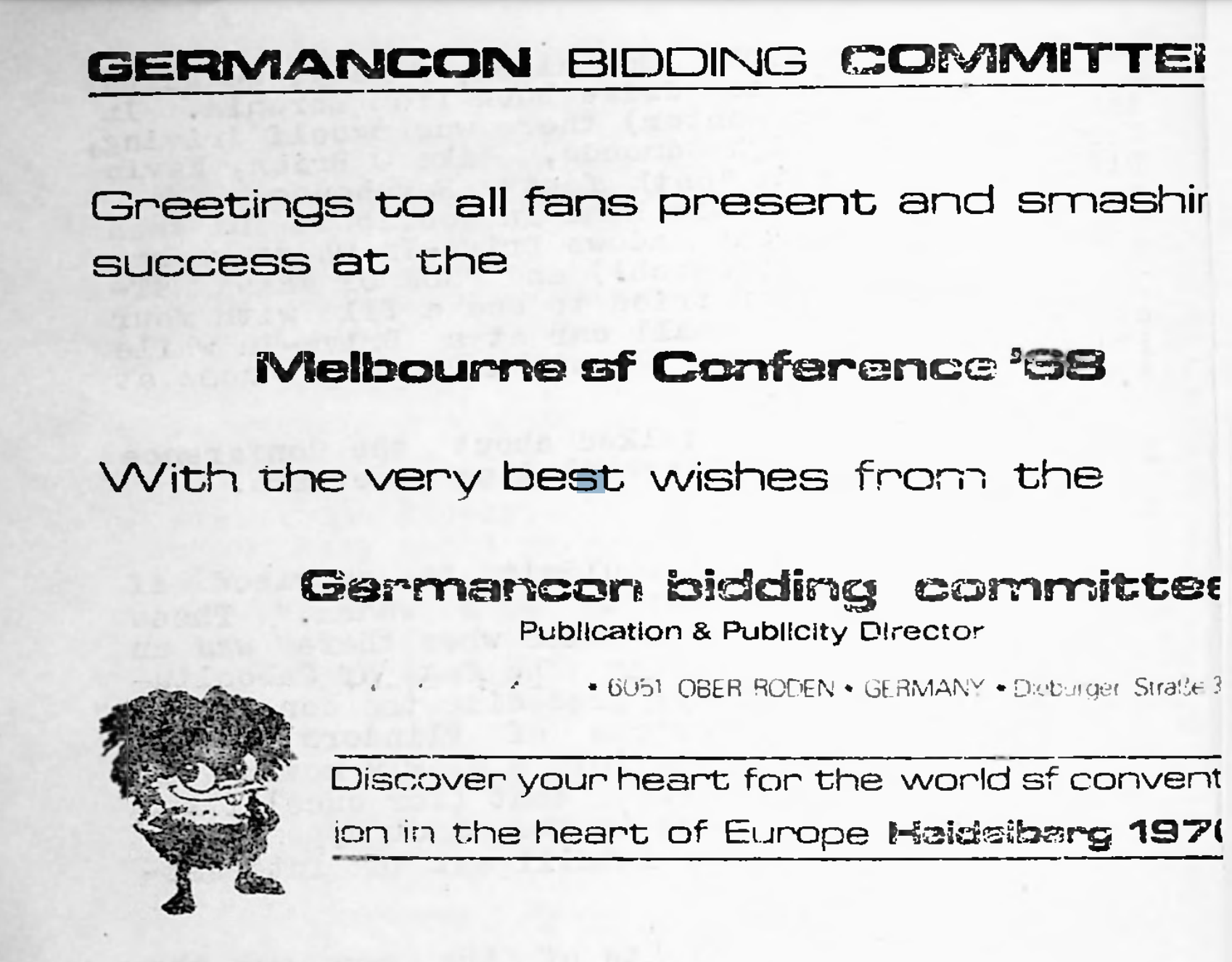
After a little while, we all moved into the convention hall. It was very striking! Eddie Jones had painted a huge backdrop featuring an alien landscape and a giant red star; a fitting setting for our weekend conventioning.
Films and even more Films
After the opening ceremonies, horror film buff John Ramsey Campbell gave a talk accompanied by films. I myself am not a horror film buff, but John Ramsey is very entertaining. I hear he is a promising writer, but I’m not a horror fiction buff either.
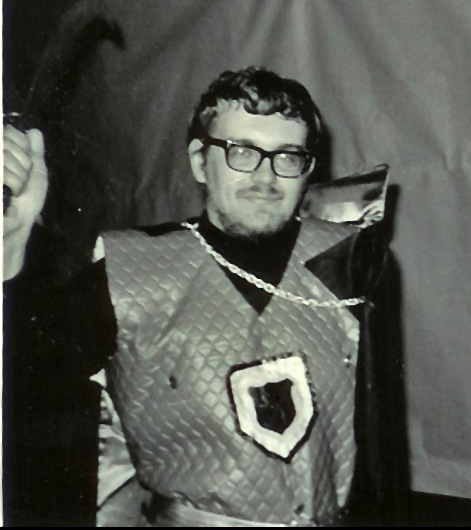
John Ramsey Campbell in his Knight of St Fantony regalia (Photo credit: Stan Nicholls)
This led naturally into a film show, featuring the work of the Delta film club and promising an X-rated film! I think it was probably a humorous rather than a scandalous one, but I returned to my room to save my energy for the rest of the weekend.
Saturday Morning: Fully Charged
I arose on Saturday in good time for the panel about starting fan clubs. I have no plans to leave London, and surely London will always have the London Circle? But it was interesting to hear about other cities and their clubs.
I then spent some time milling about with other fans. Most people at the convention were wearing ordinary working clothes, but some were dressed in jeans and other trendy gear. But on Saturday morning I encountered what I think might have been the most extraordinarily dressed man I’ve ever met in my life. I checked my wristwatch but the Fancy Dress was not due for several more hours. He was wearing bright pink trousers, an orange Chinese silk jacket with dragons on it, and a rather odd hat that looked a bit like a fez. “Oh, meet Peter Roberts!” said Beryl Mercer. “He thinks this is stylish, but I’d say he’s just an exhibitionist.”
As I was travelling by train, I had no desire to pick up books or mags at the auction, and I took the opportunity to have a walk around Buxton. It’s a very lovely spa town, though it has rather fallen on hard times. The hot thermal baths closed a few years ago, and the natural spa bath is now a public swimming pool. Saturday lunchtime is never a great time to visit such a place, so a swim will have to wait for another visit.
What is this Solar System Thing Anyway?
I returned to the convention in time for the talk by a Fellow of the Royal Astronomical Society, Alan Whittaker, “Life in the Solar System”. I think Mr Whittaker had judged his audience poorly; his talk was clearly aimed at people who had never heard anything of the planets rather than an audience who were deeply familiar with all nine of them. He could perhaps have altered his tone or content, given this, but chose not to.
By this time the con was running very late, and Ken Bulmer, giving his Guest of Honour speech, made great play of this. His speech was long but he delivered it at a furious pace. It was terrifically entertaining and we were all held spellbound. I didn’t take proper notes but Peter Weston told me later smugly that he had already made plans with Ken to republish his speech in the pages of his fanzine Speculation. Speculation is perhaps the best and most famous of current British fanzines. A small chunk of it was available to all at Thirdmancon in the form of the 'combozine', where samples of several current fanzines are bound together for distribution to convention members. This year’s combozine also featured Ethel Lindsay’s Scottische, the Bristol and District group’s Badinage, and Gothique.
After a second auction, the people who’d booked full board went off to dinner and some of the rest of us went out to explore alternatives in Buxton. There were not so many of these! But I knew I wouldn’t be able to eat as much dinner as the full board would be. When we returned, however, we discovered that the portion sizes on the set dinner were so small that some of the unhappy fans went out for a second dinner. According to Keith Freeman, the hotel manager was as unhappy as we were and swore he would never entertain the possibility of a science fiction convention again.
Nevertheless, our dinnertime woes were forgotten as soon as Eric Bentcliffe started his hilarious ‘Fandom Exposed’ slideshow. We were not sure what to expect, but of course this was a set of mostly funny and some fascinating slides from previous conventions, all narrated with great glee by Eric. This was followed by the Fancy Dress, won by Tony Walsh as “The Black Cloud”. I thought that Doreen Parker should have won for her turn as the girl from Cordwainer Smith’s “The Ballad of Lost C’Mell”.
Late Night Mayhem
Before we could all go and party, there was a grand jousting tourney, where Brian Burgess and Ted Tubb bashed each other with swords quite a lot. None of this had any noticeable effect on their very well-built suits of armour and eventually the entire thing was declared a draw.
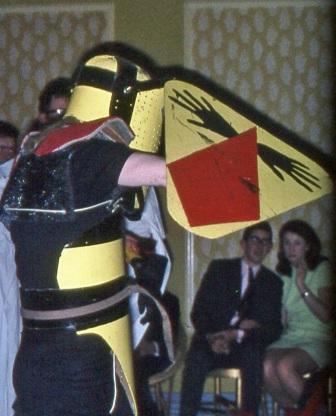
I have no idea if this was Ted Tubb, Brian Burgess, or another challenging knight
Although there had been amiable parties on the Friday night, it was Saturday when they really got going. They were often very crowded; the rooms in this hotel were not large, and in some cases the siren call of free booze was enough to draw large numbers of fans, even if the free booze was the most questionable of home brews.
Ted Tubb had apparently brought a hogshead of home brewed wine, but I rather preferred the idea of Bill Pettit’s party with crates of perfectly good commercial beer. Oddly, so did everyone else, and I couldn’t get near it. The parties were spilling out into corridors and even staircases.
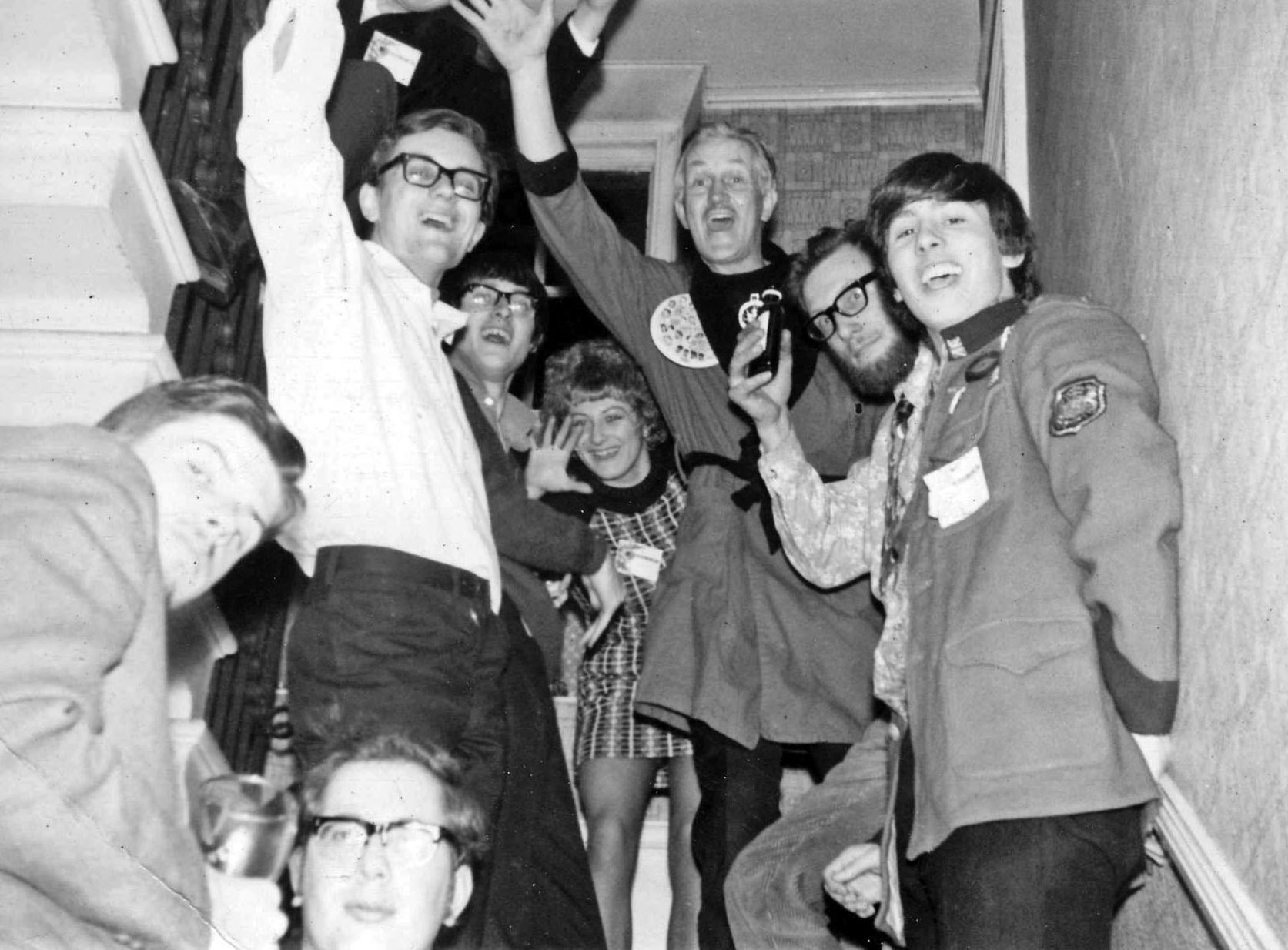
A stair party. Dave Kyle is in the centre here, and Bill Burns is to his right. Other fans are unidentified. (Photo credit: Howard Rosenblum)
Some of the more established femme fans took me under their wing. Although they insisted that all the fans were perfect gentlemen, it was clear that some of them might occasionally forget this fact after having a few drinks.
Eventually after far too much fun, I went to bed, glad that the first item on Sunday morning was the eminently skippable Annual General Meeting of the British Science Fiction Association
I did not feel quite so well on Sunday
I emerged a bit later for the second pro panel, which featured Christopher Priest, John Brunner, Ken Bulmer and Tom Disch, discussing “the difference between real life and fictional speculation.” You would expect it to be quite easy for these science-fiction professionals to spot the difference, really.
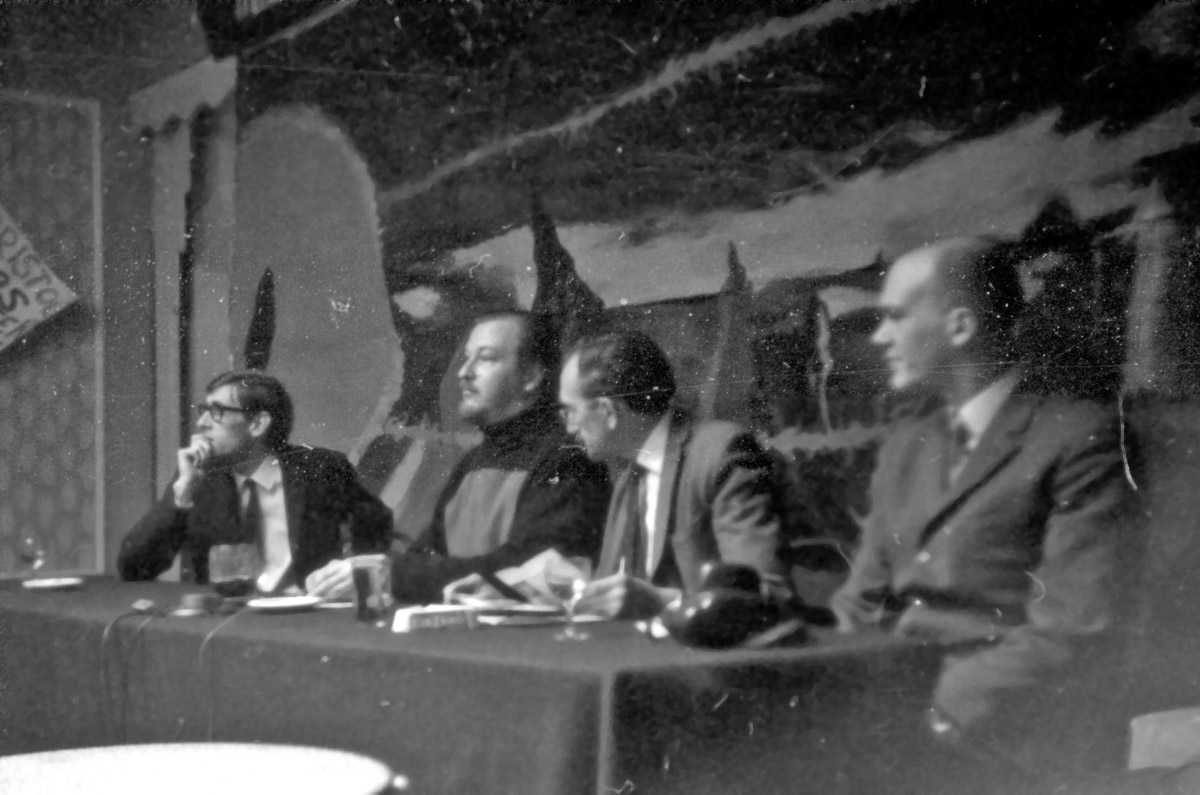
Christopher Priest, John Brunner, Ken Bulmer, Tom Disch (showing the Eddie Jones backdrop)
The fan guest of honour was the winner of the Trans-Atlantic Fan Fund, Steve Stiles. I was pleased to get a chance to chat to him over the weekend. I learnt of his shock at the recent news from America that has been covered so well in the Journey. It had quite discouraged him at the very start of his trip, but he was determined to make the best of it. His talk was very good, but was interrupted by hecklers! I later learnt that they had been set up by Stiles himself; a jolly jape but perhaps a slightly embarrassing one?
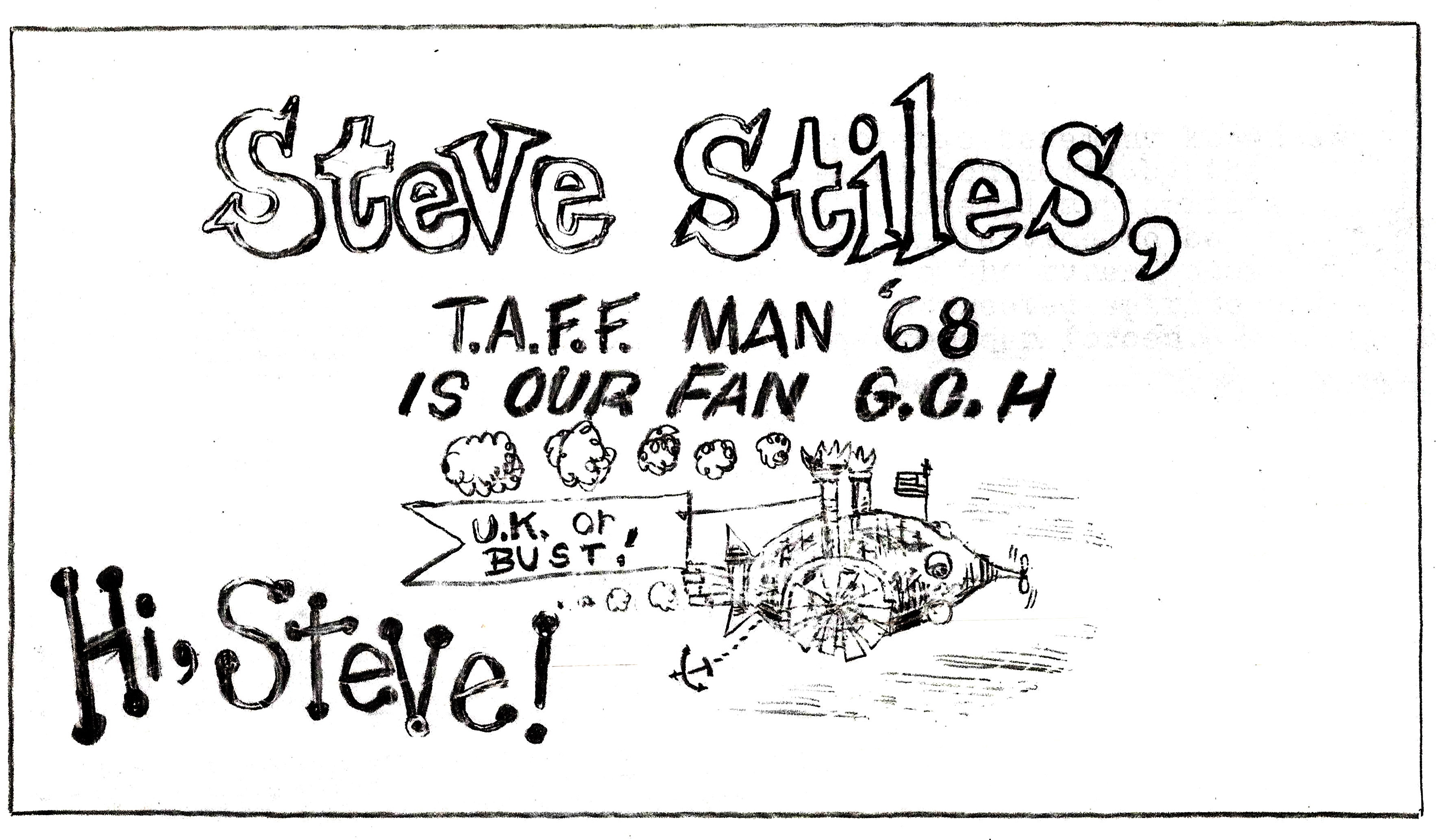
Art from the Thirdmancon programme book
Assorted Ceremonies
The evening session on Sunday was a presentation of “This is your fan life” by Eric Bentcliffe to convention chair Harry Nadler. This used audio tape, film, slides, personal reminiscences, and a rambunctious high-kick dance by what appeared to be the entire Liverpool SF group.
That was followed by the presentation of the Doc Weir Award, which is a cup, held for one year, given to ‘a fan who deserves a bit of public recognition’, and a certificate. This year it went to Mary Reed. She was clearly a popular choice, and delighted and overwhelmed with the award.
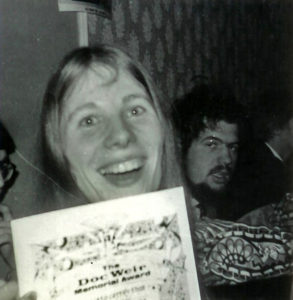
Mary Reed with her Doc Weir certificate (Photo credit: Stan Nicholls
Messages from the Future
Dave Kyle told us all about his recent viewing of Stanley Kubrick’s new film, “Year 2001, a Space Odyssey”. It was based, apparently, on a short story by Arthur C Clarke, but is very different now. Clarke is expanding his short story into a novel and I will be very interested to both read it and see the film. Apparently it is opening in the West End in just a couple of weeks. I do hope the London Circle will organise a visit!
Finally we had the mysterious, and perhaps slightly bizarre, Knights of St Fantony ceremony, in which three new knights were invested in the order – Beryl Mercer, Doreen Parker and Ken McIntyre. Phil Rogers became the new Noble Master. That concluded the formal proceedings, but there was still a lot of partying to be done.
We carried on carousing long into the night. I was encouraged to try some more of Ted Tubb’s home-brew wine but I have resolved never to make the same mistake twice. Nevertheless, I only just managed to get up in time for breakfast and to catch my train home.
The convention had some problems with cancelled and late running items, and a hotel that bordered on the hostile. However, I had a splendid time and would like to thank all the Delta Group for putting on the con.
Thanks to Sandra Bond, Claire Brialey, Bill Burns (both in person and here), FANAC, Rob Hansen, and Dave Langford for help with this article.

![[May 8, 1968] A Visit to Thirdmancon, the 1968 British Science Fiction Convention](https://galacticjourney.org/wp-content/uploads/2023/04/680426-ThirdManCon-Alison-Scott-672x372.png)



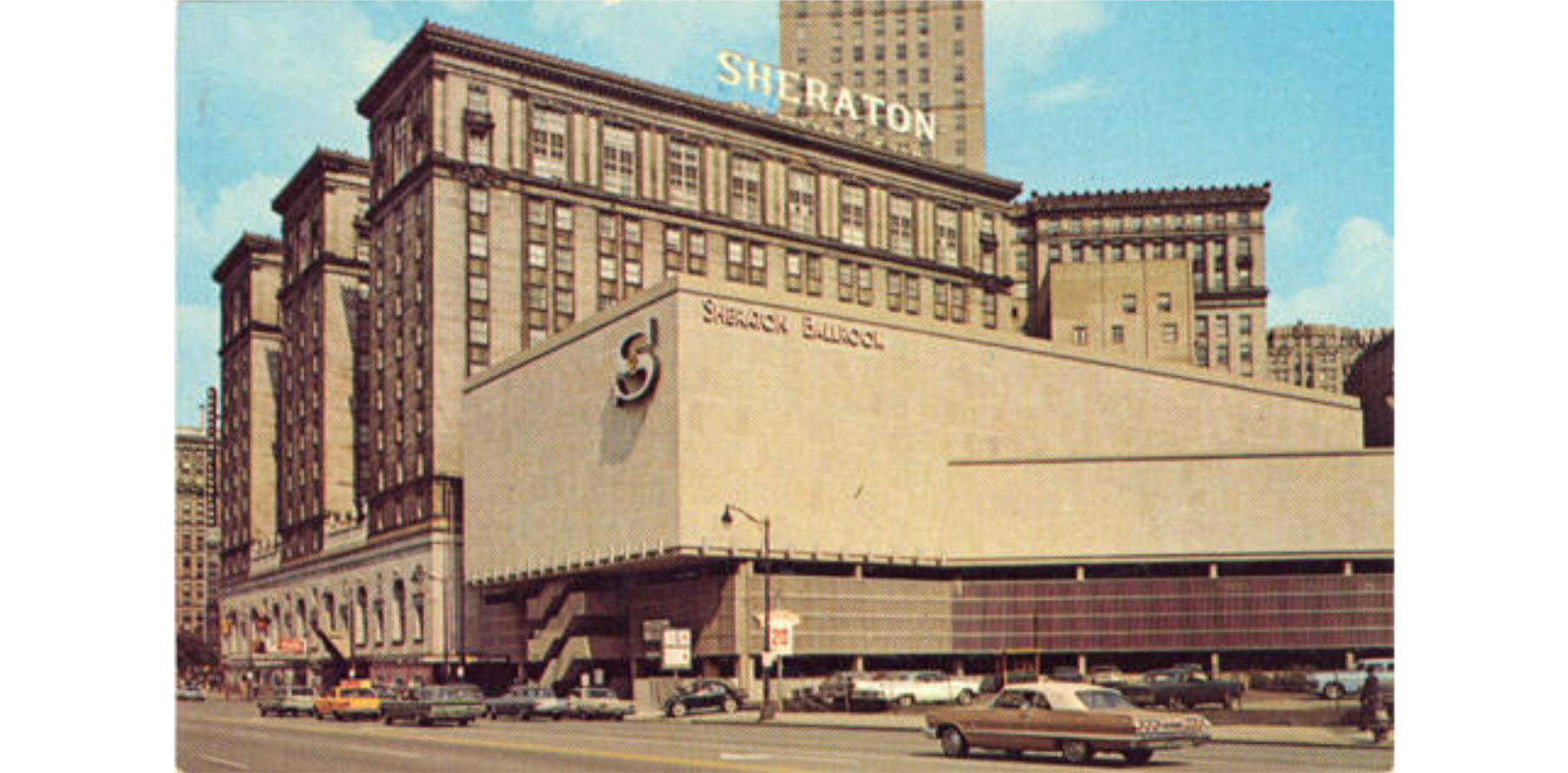
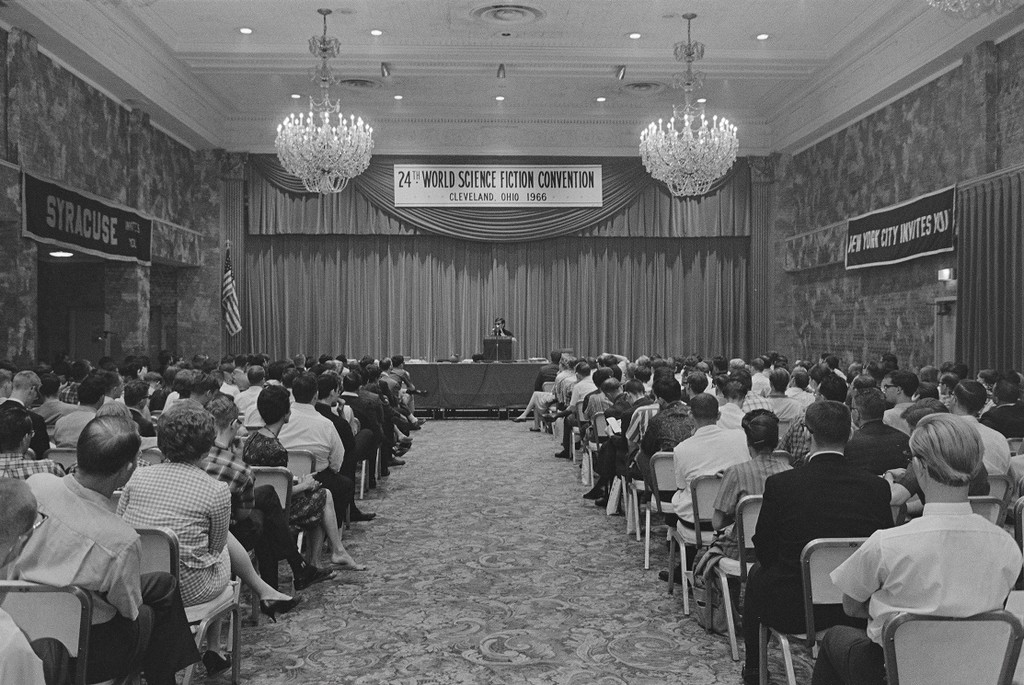









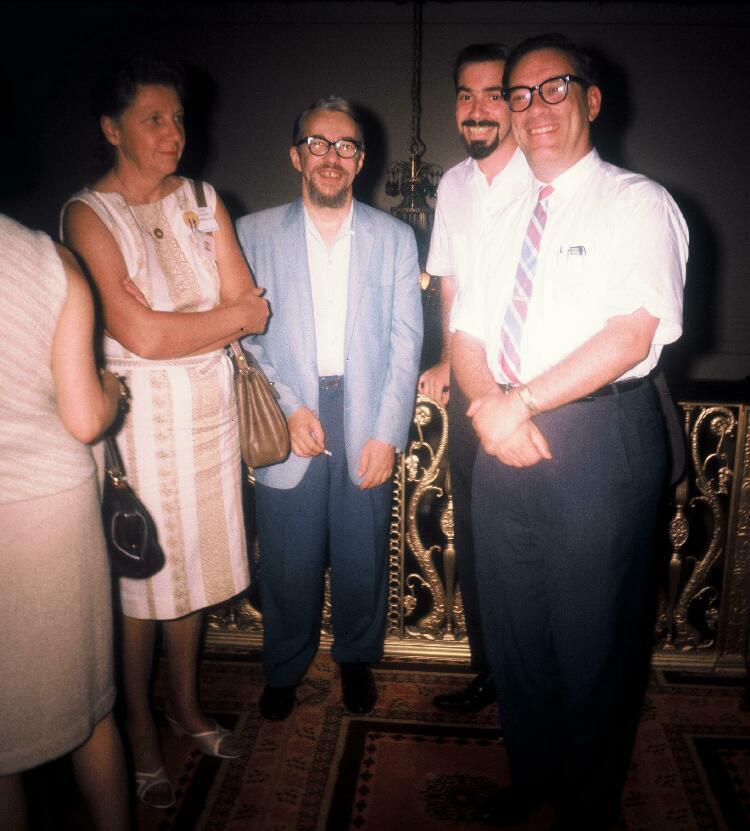

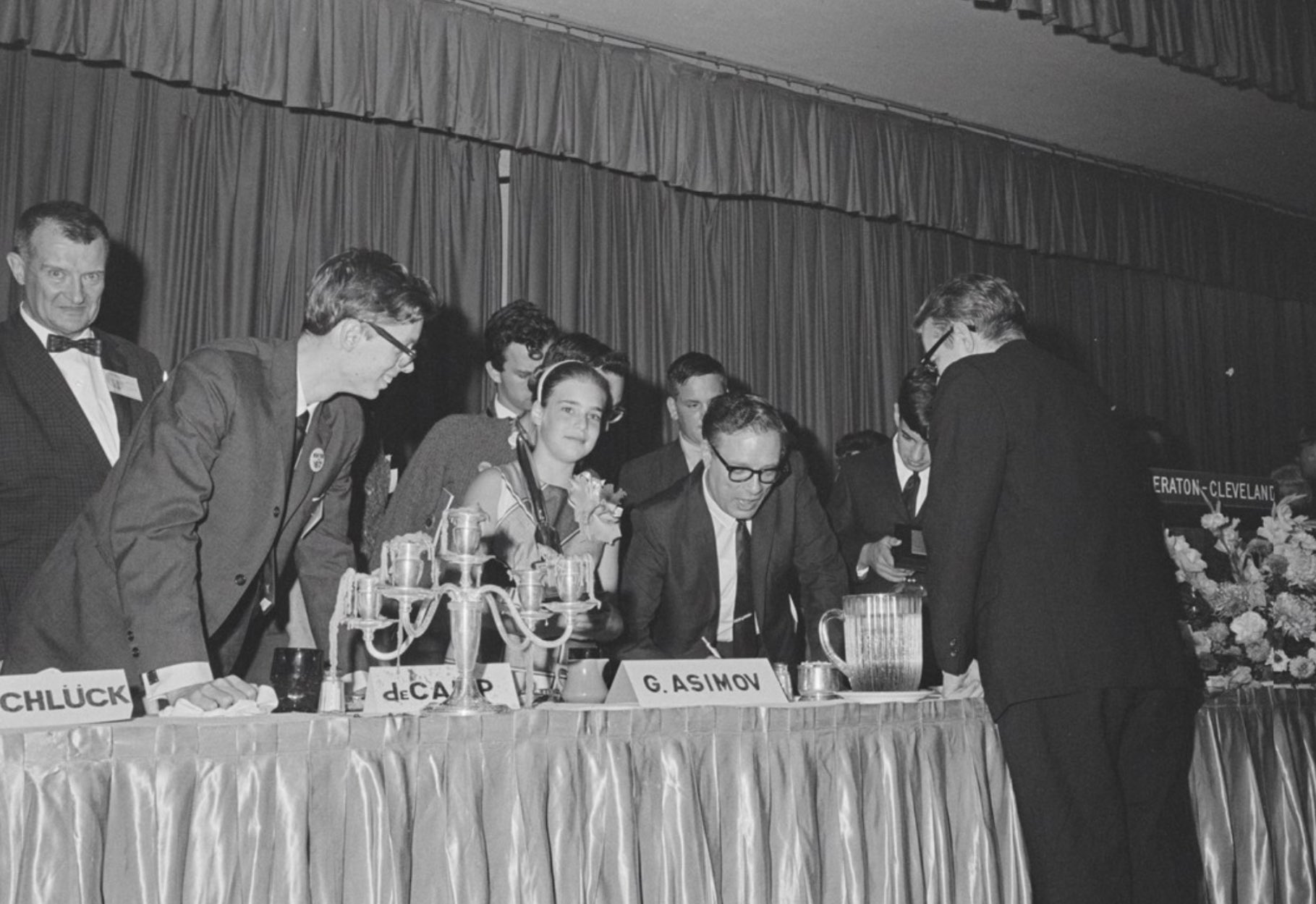

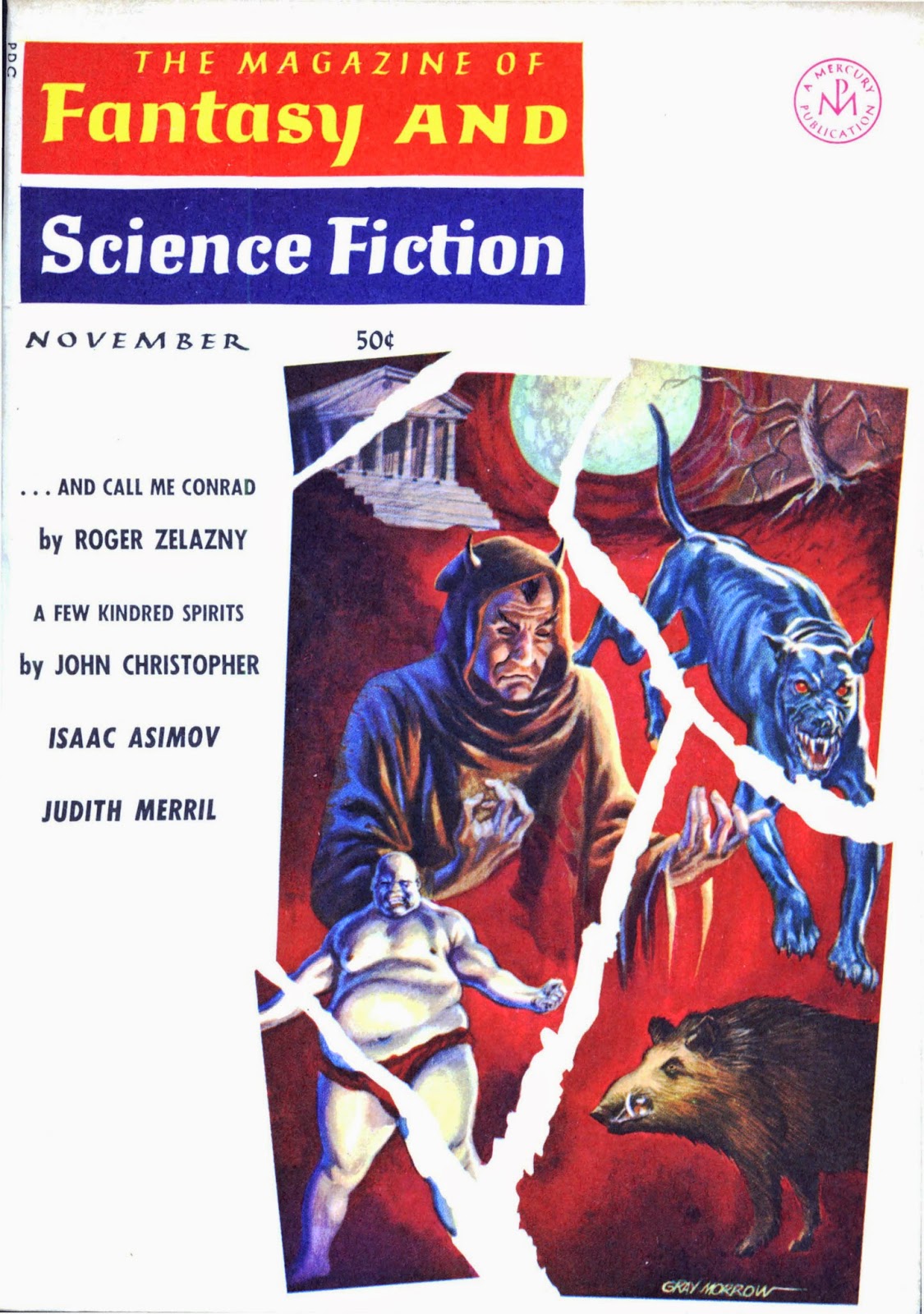
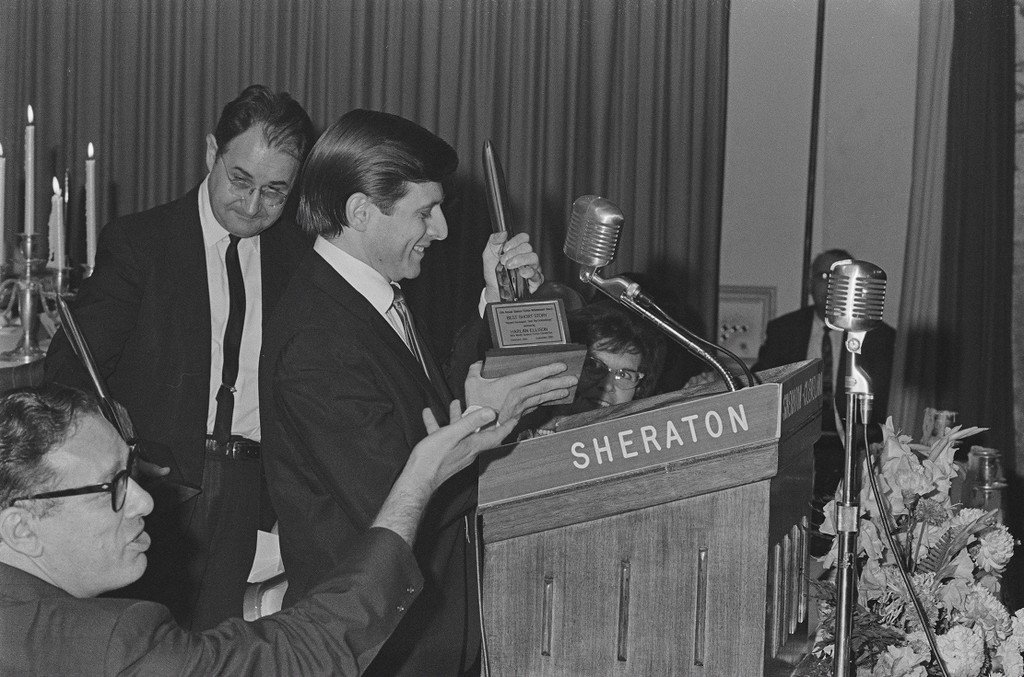

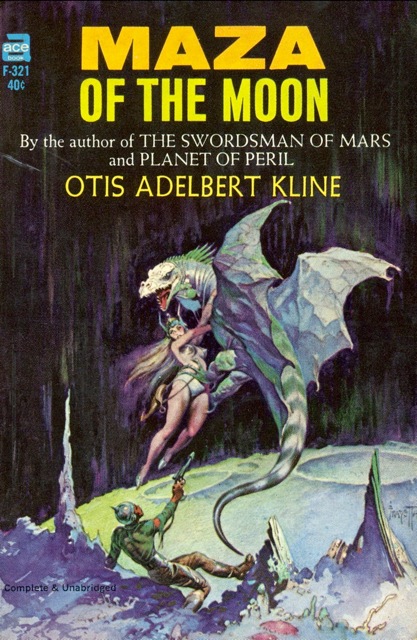



![[September 2, 1965] A Clash of Cultures (THE 1965 WORLDCON)](https://galacticjourney.org/wp-content/uploads/2020/09/Worldcon_1965_London_logo.jpg)







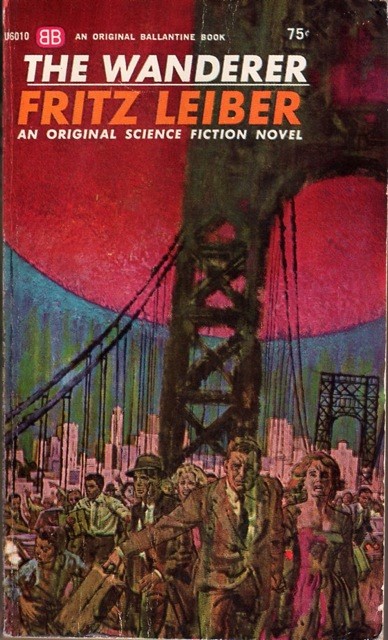
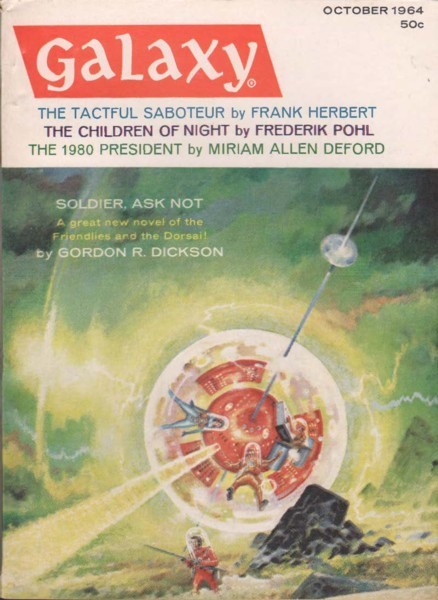
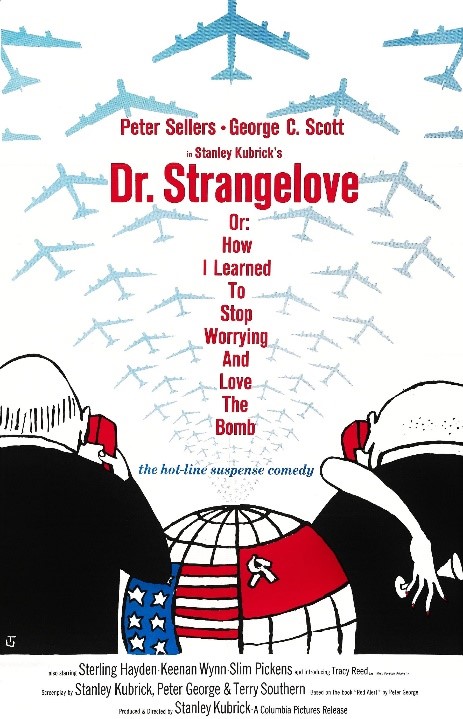
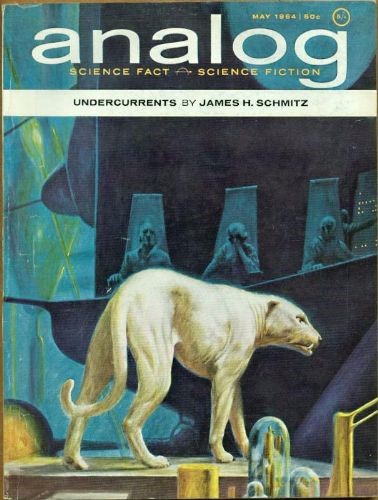
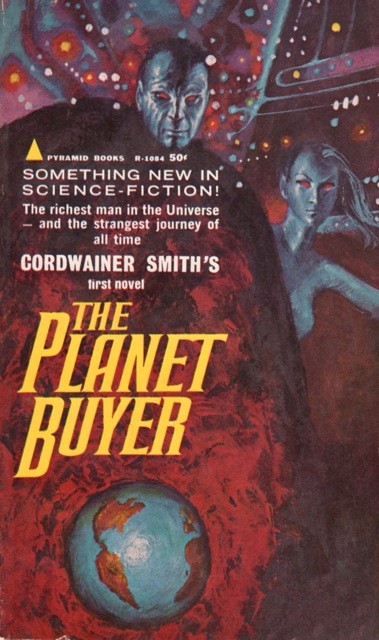
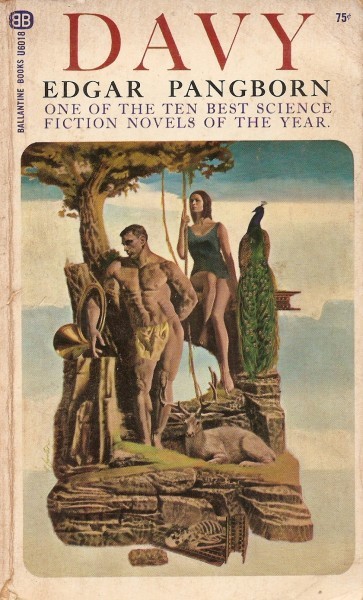
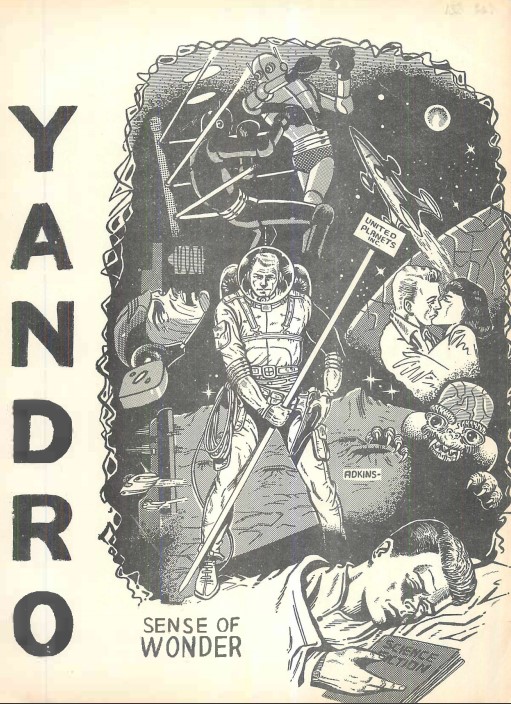
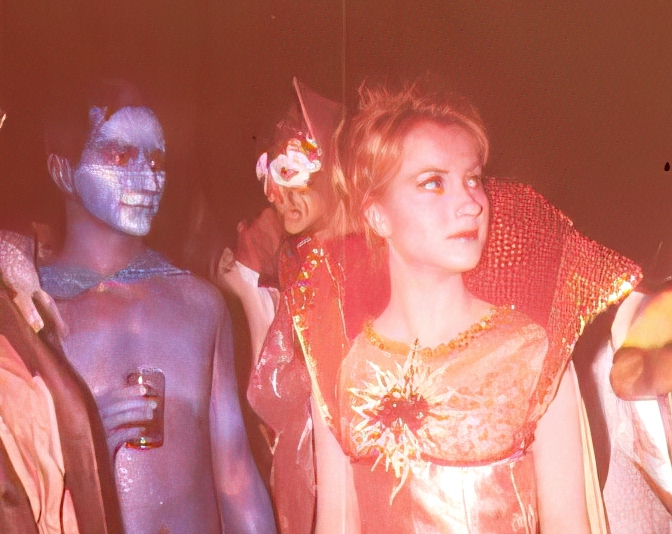
![[October 8, 1964] Through Time and Space (November 1964 <i>IF</i>)](https://galacticjourney.org/wp-content/uploads/2019/10/641008cover-672x372.jpg)
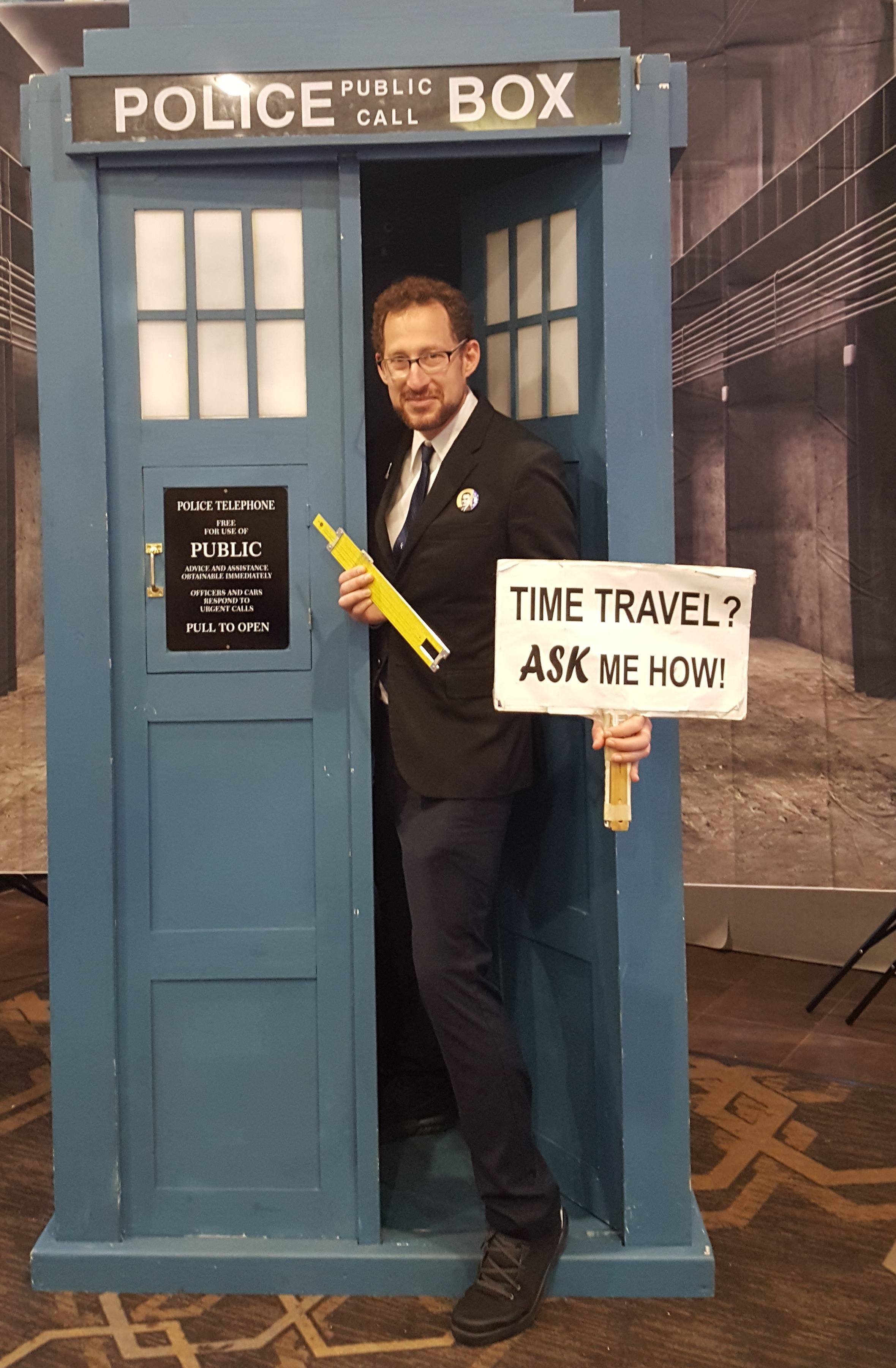


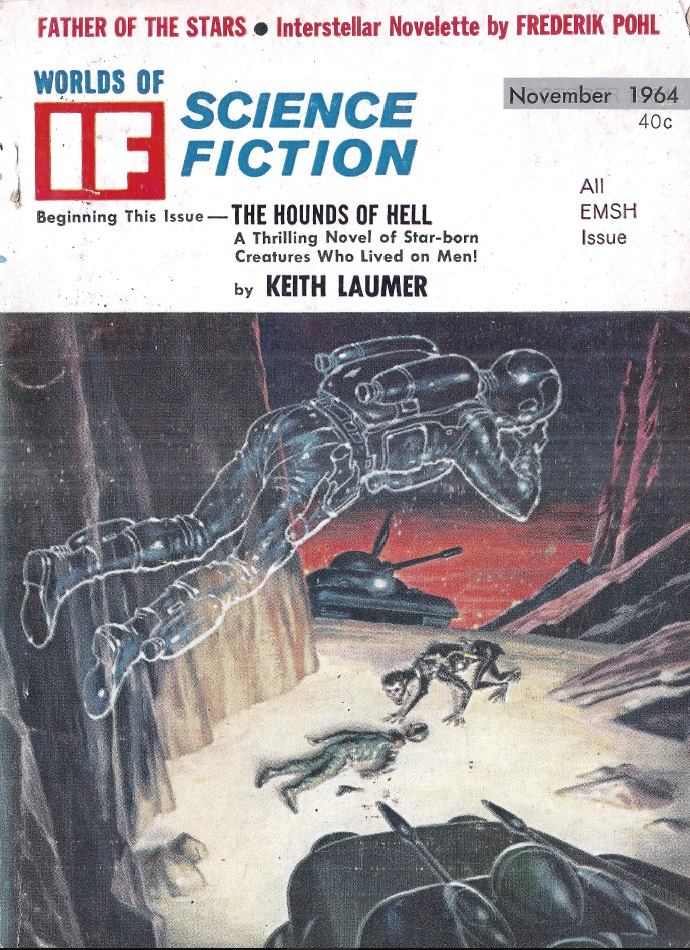
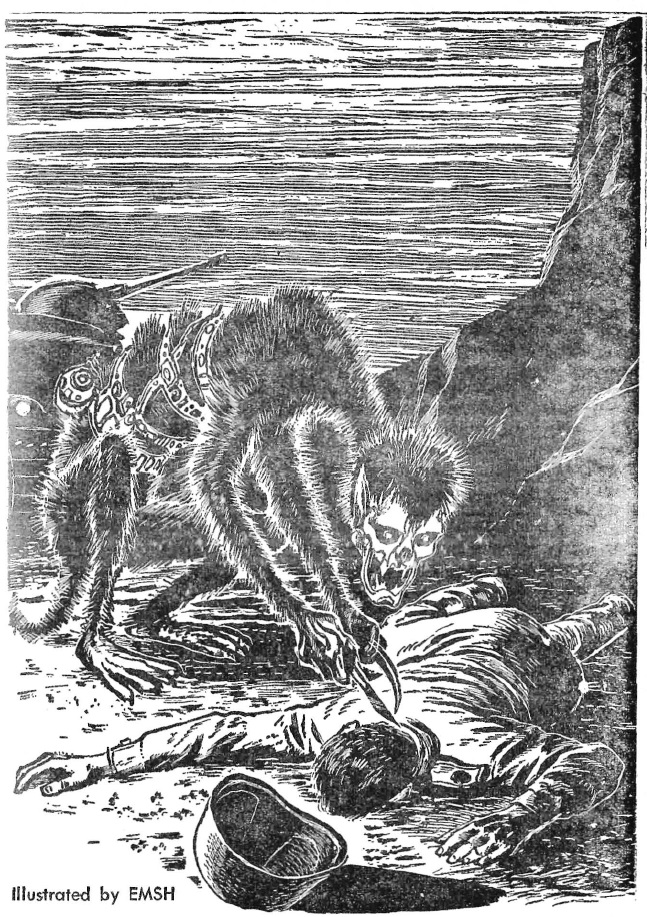

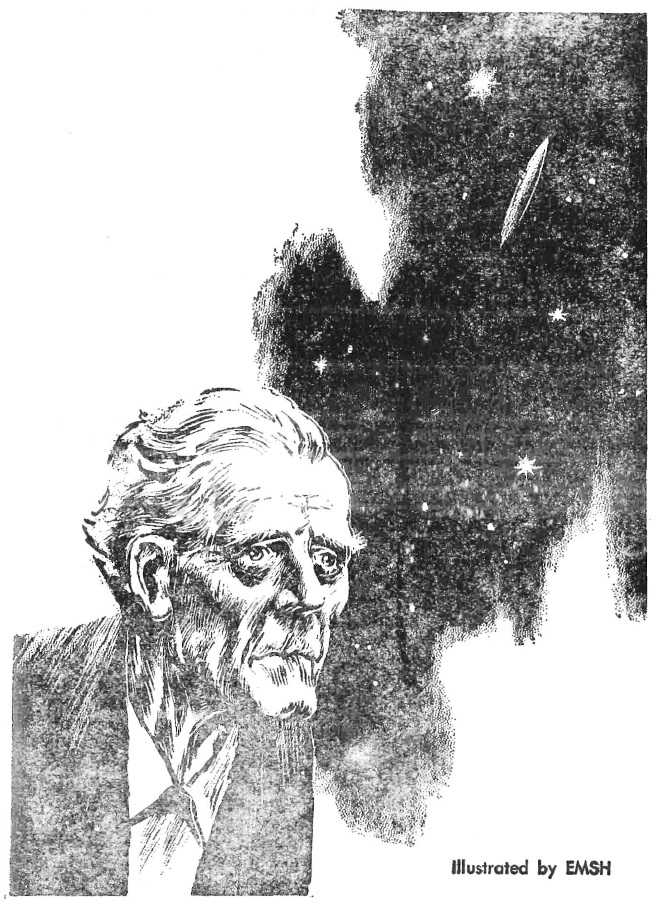
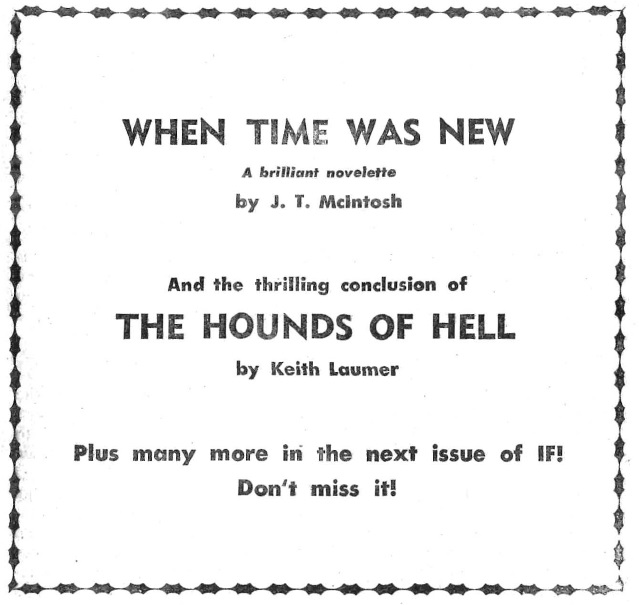
![[July 22, 1964] (August 1964 <i>Fantasy and Science Fiction</i>)](https://galacticjourney.org/wp-content/uploads/2019/07/640722cover-672x372.jpg)


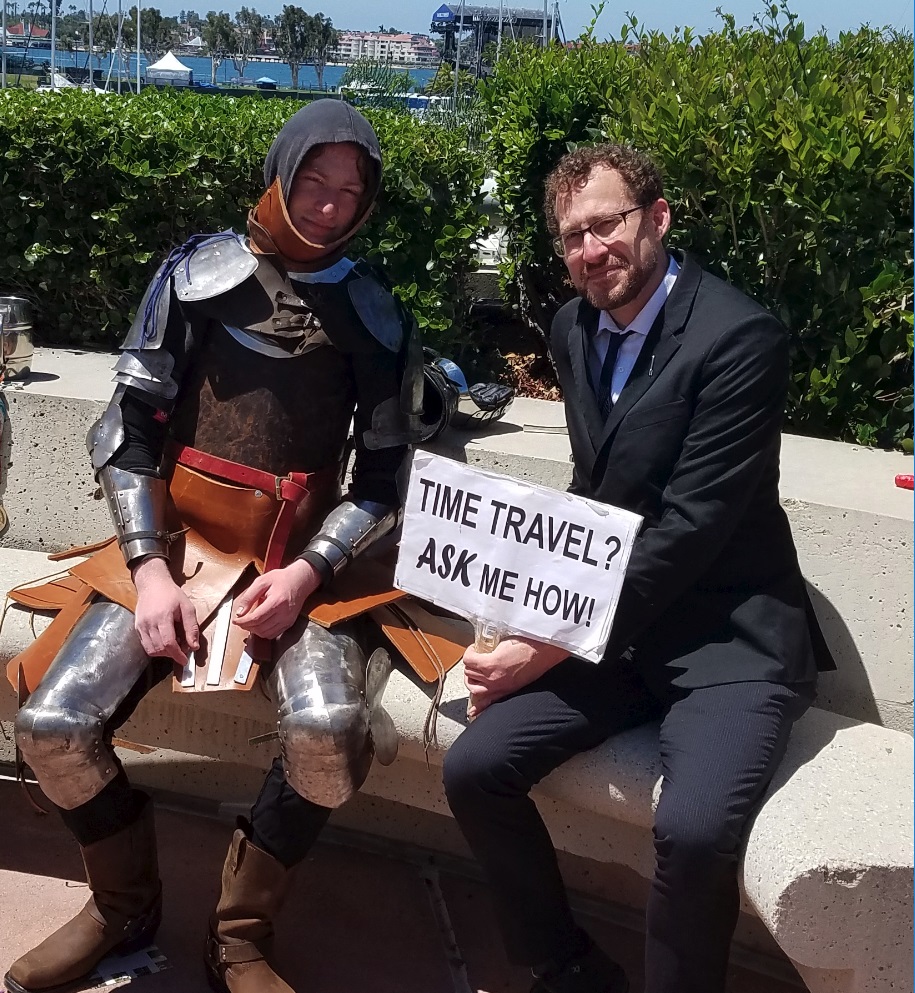



![[September 5, 1963] Oh Brave New World (the 1963 Worldcon)](https://galacticjourney.org/wp-content/uploads/2018/09/630902gj-640x372.jpg)














